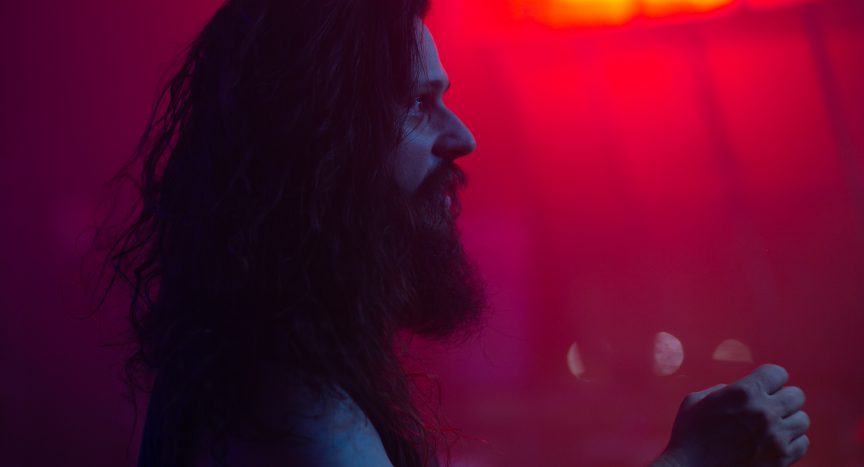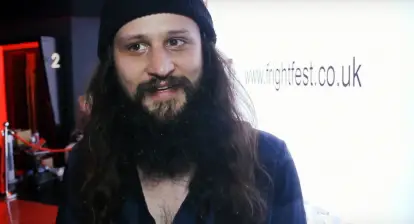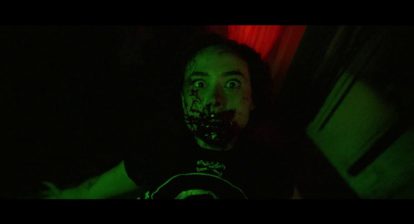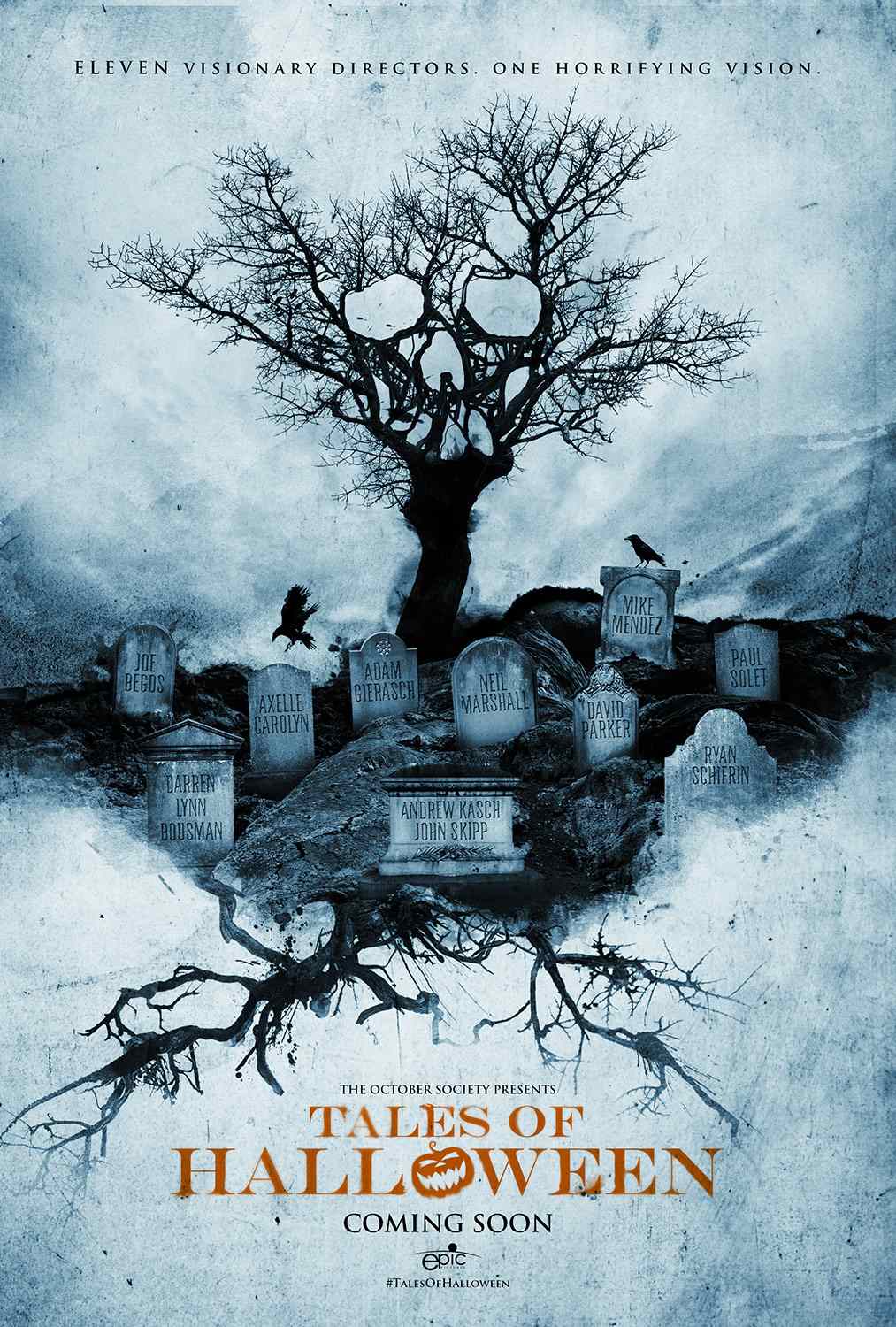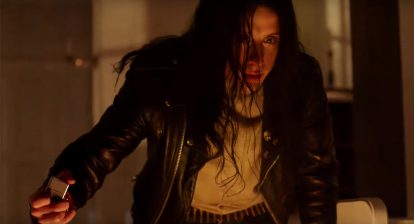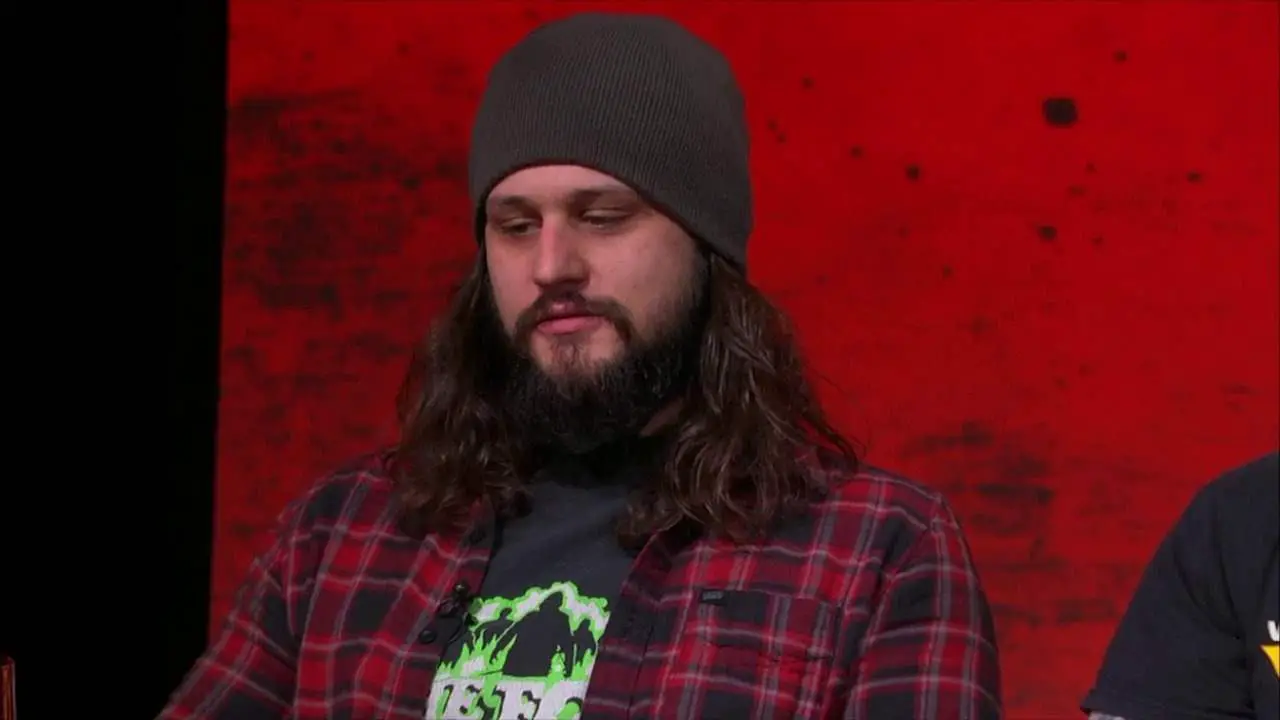Joe Begos is having a breakthrough. Last year’s Bliss was a tour de force, taking viewers into Dezzy’s (Dora Madison) world while she struggles to figure out if she’s turning into a vampire or tripping too hard. It earned a 91% on Rotten Tomatoes, and good reviews here from Joey Keogh and me.
The success helped him get his next film, VFW produced by Fangoria Films. VFW tells the story of seven veterans—played by genre stalwarts Stephen Lang, Martin Kove, William Sadler, David Patrick Kelly, George Wendt, Fred Williamson, and newcomer Tom Williamson—getting mixed up with “mutant” drug addicts next door. The two factions wage war against one another. It’s brutal and excellent. We caught up with Begos to talk about it ahead of its Valentine’s Day release.
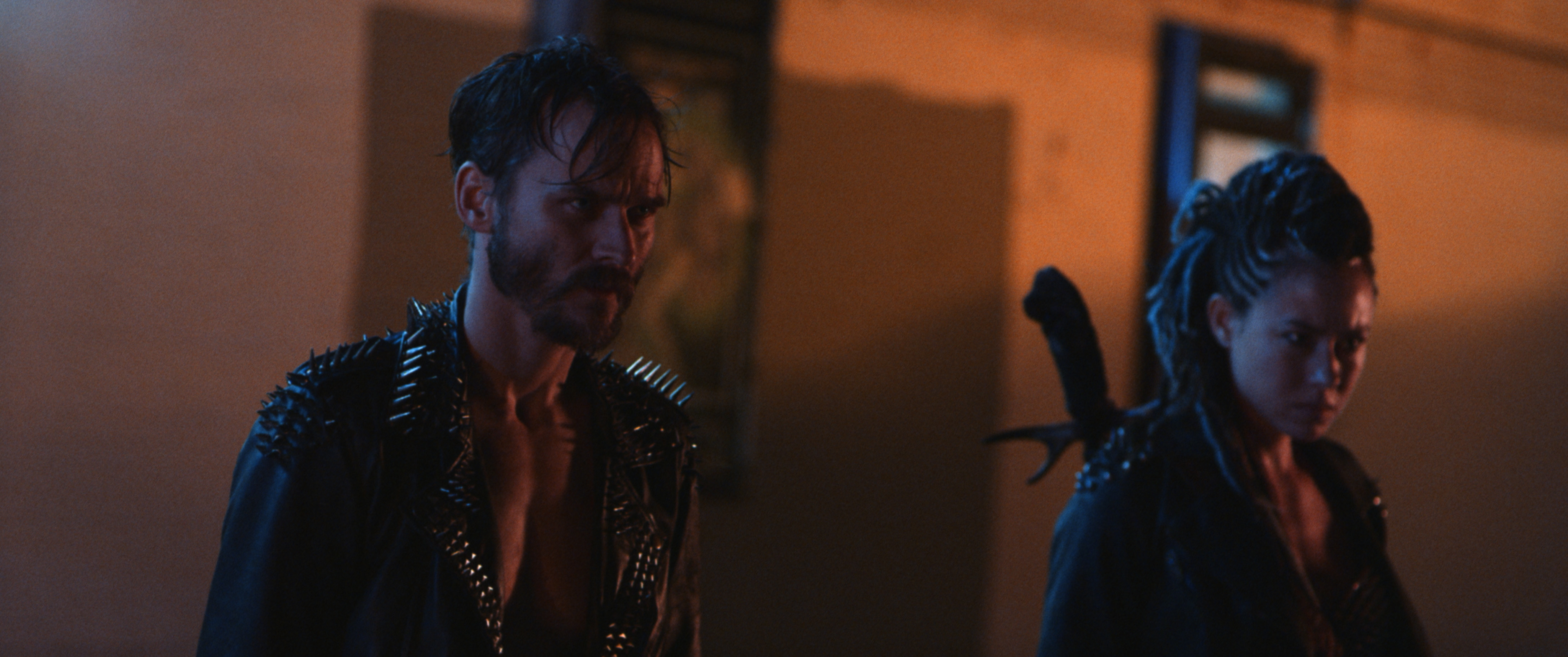
Joe Begos: It was something that I always wanted to do, but the right script never came along. I enjoyed the experience because I didn’t have to write the f***ing thing. Writing’s the most pain in the ass part.
It was really hard to familiarize myself with the material because when I’m writing as a director, as a technical person, I always think things through. How is this thing going to be staged? How is it going to be lit?
When I come into a script that’s already written, it’s hard to visualize it from top to bottom. Rewriting helped with that a little bit, but that was the weirdest thing about it. I’d be open to doing it again if the right script came along. I wanna crank out a few of my own first. Kind of get back into my mindset of what I do.
Does that make sense?
WH: It does. You don’t have the same creative scaffolding when someone else writes it.
Joe Begos: Yeah. You’ve got to build it or find your way into it.
WH: VFW was also your first film with Fangoria Films. How did that differ from producing your own films?
Joe Begos: It’s much different. They’re both really low budget movies, but Fangoria has the ability to bring a little bit more money to the table, to get a better cast, stuff like that. I’ve done three movies that I’ve produced. I raised the money. I went from a blank page to getting that shit in theaters myself, with my production company. Doing that three times in such a specific way and then coming into a movie that not only did I not write, that I’m not producing, was interesting.
We both had very specific ways to make movies, and we were able to meet in the middle and use each other’s strengths to our advantage. It’s definitely something that’s hard to come into. You know, I haven’t had anyone tell me what to do in a decade. It’s f***ing weird. If someone tells me what to do, I don’t react well to it. But Fangoria gave me a lot of freedom. I had final cut.
It’s just different going into a mechanism like that when you have such a singular view of something.
WH: You mentioned that you’re working with bigger name performers in each film, especially in VFW. Do you ever get star struck?
JB: I never get star struck, but I was nervous because there’s eight of these guys in there and you don’t know how their egos are going to be. You don’t know how they’re going to feel about being directed by someone who’s half their age. You hear horror stories about how a lot of these older guys are d****bags. They don’t give a f*** anymore and they don’t want to be there. None of these guys were like that.
I had anxiety about that before I started. I was nervous, but once we started rehearsing it went away. I saw how rad everybody was. They actually wanted to be there and make the material good. It was amazing. It definitely wasn’t a payday, because I know how much everybody got paid. [Laughs].
WH: VFW and Bliss have a markedly different visual style than Almost Human and The Mind’s Eye, with lots of reds and blues along with strobing lights. What inspired that shift?
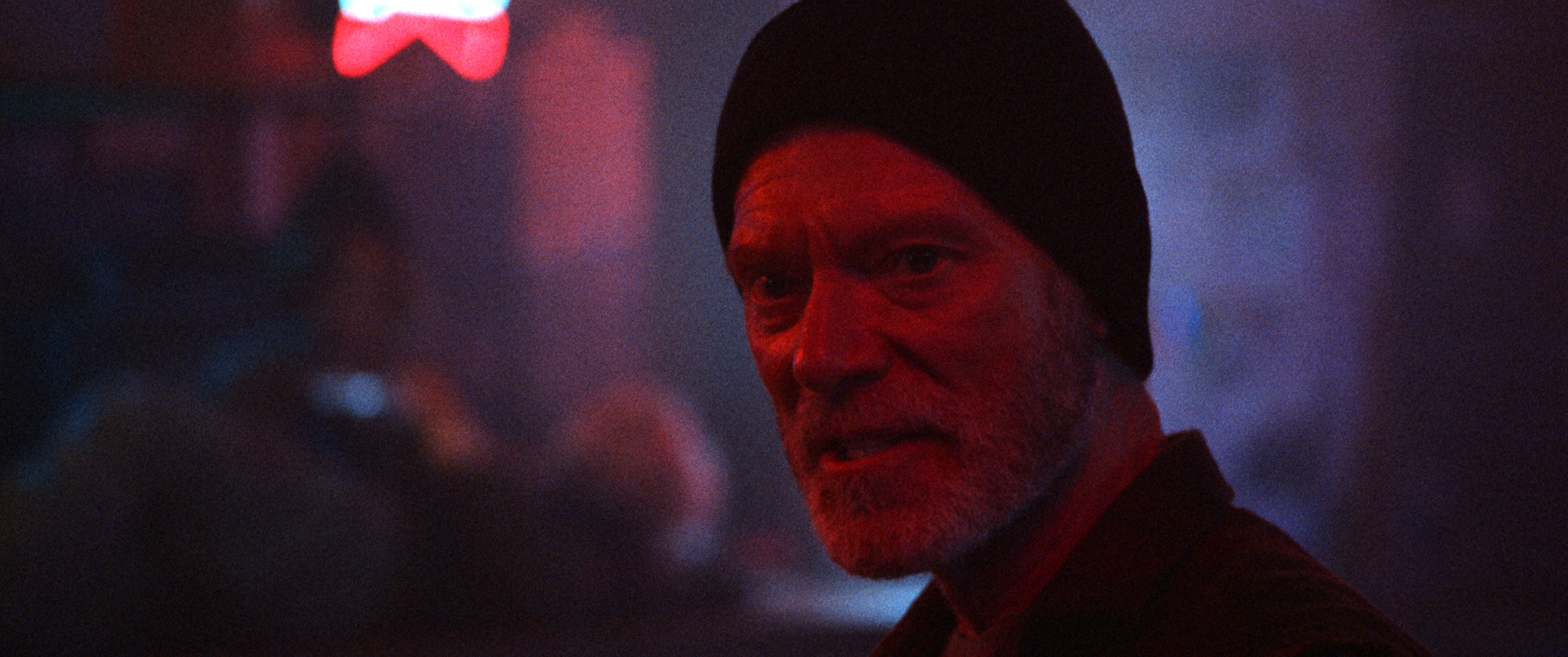
Joe Begos: My mindset grew organically. When I made Almost Human and The Mind’s Eye, I was so young. My life experience was watching movies in my basement and getting stoned. I was going to make movies that felt like the movies I watched. Then, there was a big gap of time, where I formed myself. I got that out of my system. It let me put more of my own self into the movies.
I was like, “You know what? F*** it. I’m going to put my brain into the movies. F*** cinematic rules. F*** what anybody thinks about what I should’ve done. I’m just going to put my brain on the f***ing screen. That’s what I want to do.”
And that’s what I did with Bliss. That’s how my living space is designed. You know, my walls are purple and black. There are neon lights everywhere. I’m a night owl. I do a lot of substances while I’m creating stuff, and I’m always f***ing procrastinating my work. I’m going to make a f***ing movie that is like my life.
I’m kind of now approaching material like that, where it’s not like “I’m going to be a bad boy” but I’m going to approach s*** like in the f***ed up way I see stuff in my brain and that’s it. Now I realize that there’s a niche for that. There’s not a lot of other people making movies in the very secular little realm that I am. I realized that maybe I should run with my f***ed up brain on film.
WH: I loved Bliss too. It felt much rawer than your earlier work.
JB: I wanted to be very distinct. You know the way you mentioned the way the movies looked and the visual style. I feel like the way horror’s moving with very few exceptions looks so bland and lame these days. Everything is so blown out, and digitally shot, and the exposure is so high. Everything is so bright. I’m so sick of movies that are shot in f***ing locations where there’s zero production design. It looks like an Airbnb. Every single f***ing light is on. There’s no shadows.
This isn’t what horror movies are supposed to look like. I want my movies to look sensational. I want them to be dark. I want you to not know what’s a shadow. I want you to feel grimy. I want you to have feelings when you’re looking at an image. I don’t want to look like a Netflix f***ing show of the week. I can’t stand how horror looks.
Bliss was a reaction as a whole, the way it looks, the way it feels, to the way horror is being done now. VFW is an organic extension from that.
Related: Director Joe Begos Talks Bliss [Frightfest 2019 Interview]
WH: You’ve killed Graham Skipper‘s character in every film you’ve made. Do you ever plan to let him survive?
Joe Begos: No. [Laughs]
WH: Where did your production company Channel 83 get its name?
Joe Begos: It is the channel that Max Renn in Videodrome runs.
WH: What are you working on next?
JB: I’m writing a few different things. I’m not sure which one will get financed if any. I’ve got to keep a lid on that. Don’t want to jinx anything. Hopefully something will get going sooner rather than later.
WH: February is Women in Horror month. Do you have a favorite female director you’d like to shout out?
JB: My favorite independent horror director right now is Jen Wexler. She’s f***ing really awesome, and I’m looking forward to her follow-up to The Ranger. The Ranger is on Shudder now.
Related: The Ranger is Bloody, Smart, and Unpredictable [Frightfest 2018 Review]
Follow us on social media: Twitter, Facebook, Instagram, and Youtube
